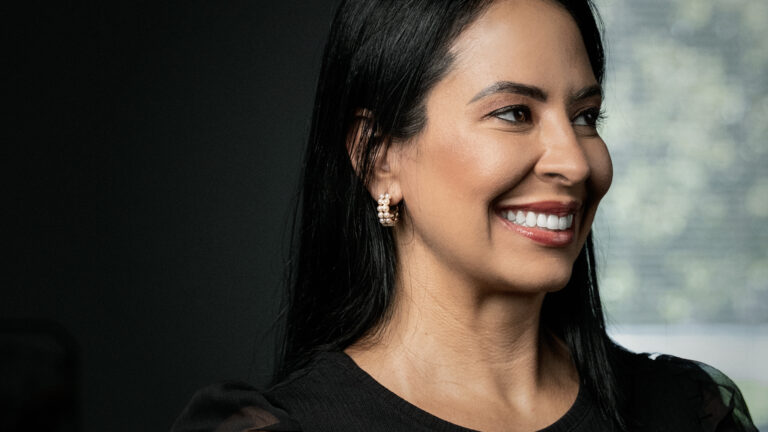Have you ever wondered how Dutch Bros became one of America’s most beloved coffee chains? This West Coast favorite has grown exponentially thanks to its vibrant culture, energetic customer service, and unique beverages. Known for its upbeat and community-driven atmosphere, Dutch Bros has cultivated a loyal customer base beyond great coffee.
If you’re considering joining this coffee giant, you might wonder how to open your own Dutch Bros franchise. However, Dutch Bros operates differently from traditional franchise models, focusing instead on internal growth and culture preservation. This article explores the key details of Dutch Bros’ franchising model, including what it takes to become a franchisee, the costs involved, and why this company’s approach differs from other franchises.
The Unique Dutch Bros Culture: Why Franchise Opportunities Are Limited
Dutch Bros Coffee isn’t just another coffee shop—it’s a movement. From the moment you walk into one of their locations, you can feel the energy and enthusiasm of their staff, or “Broistas,” as they’re called. The culture at Dutch Bros is deeply rooted in creating memorable customer experiences, prioritizing human connection over quick transactions.
Founded in 1992 by brothers Dane and Travis Boersma in Grants Pass, Oregon, Dutch Bros started as a small coffee cart and has grown into a multi-state empire. Despite this growth, the company has remained fiercely protective of its brand and values. This commitment to consistency is one of the primary reasons Dutch Bros decided to limit franchise opportunities in 2017.
Rather than expanding through traditional franchising, Dutch Bros strategically decided to promote from within. This move allows the company to maintain a cohesive brand image while ensuring that every new franchise operator has a deep understanding of the company’s culture and mission. Only long-term employees with a proven track record are considered for franchise opportunities, making it one of the most selective franchise systems in the industry.
Maintaining Culture in a Fast-Growing Company
Franchising has often been criticized for diluting company culture. When new franchisees enter the business, there’s always a risk that they won’t fully embody the company’s values, leading to inconsistencies across locations. Dutch Bros’ decision to limit franchises to long-term employees who have already demonstrated their commitment to the company helps avoid this pitfall. As a result, the customer experience at Dutch Bros remains consistent, whether you’re visiting a location in Oregon or Arizona.
What It Takes to Become a Dutch Bros Franchisee
Unlike other significant franchises where anyone with sufficient capital and a good location can apply, Dutch Bros keeps its franchising opportunities strictly internal. This selectiveness stems from their deep commitment to culture preservation and employee satisfaction.
If you aim to become a Dutch Bros franchisee, the path begins with employment at one of their locations. Employees who are passionate about the company, demonstrate leadership qualities, and align with the company’s core values have the potential to rise through the ranks. After years of dedicated service, some employees are offered the opportunity to become regional operators. These roles often come with owning and operating their Dutch Bros location.
While this process is certainly more rigorous than simply filling out an application, it has been remarkably effective. Franchise owners at Dutch Bros are deeply invested in the brand and have a strong sense of loyalty, directly translating to better service and more engaged employees at every level.
The Selection Process
Becoming a Dutch Bros franchisee is not just about clocking in the hours. The company looks for individuals who exemplify its mission and values. Franchise candidates must prove their dedication to customer service, team leadership, and community engagement. Leadership within Dutch Bros evaluates potential franchisees on their ability to maintain the company’s culture, foster team spirit, and consistently deliver the high standards of customer care that Dutch Bros is known for.
Franchise Costs and Earnings: A Look at the Numbers
For those fortunate enough to be considered for a Dutch Bros franchise, the financial requirements are substantial but not prohibitive compared to other major franchises. Opening a Dutch Bros location typically requires an initial investment between $150,000 and $600,000, depending on location, store size, and operational costs. This investment covers everything from equipment and initial supplies to build-out expenses.
Dutch Bros Franchise vs. Other Coffee Franchises: Startup Costs Comparison
| Coffee Franchise | Initial Investment Range | Franchise Fee | Royalty Fee |
| Dutch Bros Coffee | $150,000 – $600,000 | Internal only | 5% of gross sales |
| Starbucks | $315,000 – $2.1 million | No franchise fee | 7% of gross sales |
| Dunkin’ Donuts | $228,000 – $1.7 million | $40,000 – $90,000 | 5.9% of gross sales |
| Tim Hortons | $680,000 – $1.9 million | $35,000 | 6% of gross sales |
This table highlights the initial investment costs for starting a Dutch Bros franchise compared to other popular coffee franchises, as well as the associated fees.
Comparing Dutch Bros to Other Coffee Franchises
When you compare the startup costs for Dutch Bros to other coffee franchises like Starbucks or Dunkin’, Dutch Bros is relatively affordable. For example, the initial investment to open a Starbucks can range anywhere from $315,000 to $2.1 million, depending on the size and location of the store. Similarly, Dunkin’ Donuts requires an initial investment of $228,000 to $1.7 million.
Despite its lower initial costs, Dutch Bros locations tend to generate impressive revenue. According to industry reports, a typical Dutch Bros location can earn up to $2 million in gross annual sales. With a highly efficient business model and the ability to attract a loyal customer base, Dutch Bros franchisees can expect a yearly profit of around $240,000, making it a very profitable venture for those who make it through the selection process.
Average Annual Revenue and Profit Comparison
| Coffee Franchise | Average Gross Annual Revenue | Average Annual Profit |
| Dutch Bros Coffee | $2 million | $240,000 |
| Starbucks | $1.4 million | Varies by location |
| Dunkin’ Donuts | $900,000 | $100,000 – $150,000 |
| Tim Hortons | $1 million | $100,000 – $150,000 |
This table illustrates how Dutch Bros’ annual revenue and profit compare favorably with other coffee franchises, making it an attractive option despite its selective franchising process.
The Importance of Location
As with any business, location plays a critical role in determining the success of a Dutch Bros franchise. While the company has thrived in small towns and suburban areas, it has also succeeded in larger urban markets. One reason for this is Dutch Bros’ appeal to younger consumers. The company’s playful branding, unique drinks, and vibrant culture resonate particularly well with millennials and Gen Z, who value experiences as much as the products themselves.
By carefully selecting its franchisees and locations, Dutch Bros has ensured steady growth without losing the essence of what makes the brand unique. This careful approach to expansion has allowed the company to maintain its customer-first focus, even as it continues to open new stores nationwide.
Dutch Bros vs. Other Coffee Franchises: What Sets It Apart?
While Dutch Bros is often compared to other coffee franchises like Starbucks or Dunkin’, there are some key differences that set it apart. These differences have helped the company discover its niche in the highly competitive coffee market.
Focus on Speed and Efficiency
One of Dutch Bros’ most significant differentiators is its focus on speed and efficiency. The company primarily operates drive-thru locations, which allows it to serve customers quickly while still delivering the same high-quality coffee and friendly service that people have come to expect. In contrast, many Starbucks locations operate as sit-down cafes, which can lead to longer wait times for customers on the go.
By prioritizing speed, Dutch Bros has been able to cater to busy consumers who want to grab their coffee and go without sacrificing the personal touch. This efficiency has particularly appealed to suburban and rural areas, where drive-thru convenience is highly valued.
An Emphasis on Relationships
While many coffee franchises focus on the transactional nature of selling coffee, Dutch Bros takes a different approach. The company has built its reputation on relationships—both with customers and within the communities it serves. Every interaction at Dutch Bros is seen as an opportunity to make someone’s day a little brighter.
This focus on relationships extends to the way the company treats its employees. By promoting from within and offering leadership opportunities to those who excel, Dutch Bros creates a culture of loyalty and dedication that is rare in the franchise world. Employees feel valued and empowered, leading to better service and a stronger customer connection.
Dutch Bros: Benefits and Challenges of the Franchising Model
| Benefits | Challenges |
| Strong focus on culture and customer relationships | Limited external franchising opportunities |
| Lower initial investment compared to competitors | Slower expansion rate due to internal growth |
| High-profit margins per store | Competition in the growing coffee market |
| Loyal customer base with community engagement | Exclusivity may limit diversity in franchisees |
This table summarizes the pros and cons of the Dutch Bros franchising model, offering a glance at the advantages and potential drawbacks of their selective system.
Challenges of the Dutch Bros Franchising Model
While Dutch Bros’ approach to franchising has been successful, it’s not without its challenges. One of the most significant hurdles for potential franchisees is the limited availability of opportunities. Because the company only promotes from within, it can be challenging for outsiders to break into the system. This exclusivity has led some to criticize the company for being too insular.
Additionally, the company’s emphasis on culture preservation means that it may miss out on potential growth opportunities. By limiting its expansion to long-term employees, Dutch Bros has slowed its growth rate compared to other coffee franchises. However, this slower growth is intentional, as the company prioritizes maintaining its unique culture over rapid expansion.
Another challenge Dutch Bros faces is the increasing competition in the coffee market. The rise of specialty coffee shops and chains means Dutch Bros must continually innovate to stay relevant and competitive. While their unique offerings, like Rebel energy drinks and seasonal specialties, help differentiate them, maintaining this edge requires constant attention to consumer trends and preferences.
Dutch Bros has carved out a unique space in the coffee industry by staying true to its roots and carefully controlling its expansion. While it’s no longer possible for just anyone to open a Dutch Bros franchise, the company’s focus on promoting from within has created a robust and cohesive brand that thrives. If you’re passionate about coffee and community, consider starting your journey as a Dutch Bros employee—you might just find yourself running your location one day.



